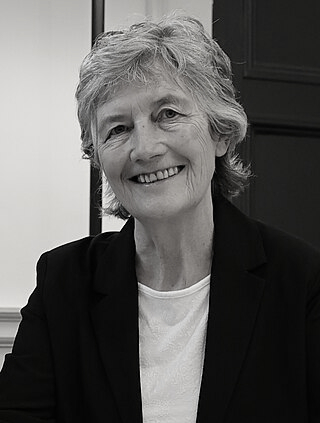
Left-wing independent Catherine Connolly becomes Ireland’s new president
Independent left-wing politician Catherine Connolly has become Ireland’s new president after her sole opponent, Heather Humphreys of the centrist Fine Gael party, conceded.
Humphreys congratulated Connolly on “becoming the next president of Ireland” following early counts indicating a decisive victory. Deputy Prime Minister and Fine Gael leader Simon Harris also posted on X, “She will be President for all this country. Her success will be Ireland’s success.”
Connolly, 68, was born and raised in Ireland. She trained as a clinical psychologist and later qualified as a barrister, combining social science and legal expertise. Her professional background helped her develop a deep understanding of societal issues, particularly mental health, social justice, and equality. She entered politics in 2016 as an independent lawmaker and quickly gained recognition for her principled and socially-focused approach, earning support from left-wing parties including Sinn Féin and Labour.
Known for her independent mind, Connolly has progressive stances - she opposes NATO and military interventions, supports Palestinian rights, advocates for a united Ireland, and emphasizes social equality and climate action. Her positions resonate with younger voters and those seeking a president who champions social justice and human rights.
Following her victory, Connolly delivered a speech at Dublin Castle, stating: “I will be a president for all, with an independent mind, who represents everyone, regardless of how they voted.” She highlighted her commitment to inclusivity, diversity, and constructive questioning in shaping a republic that values all citizens. She celebrated her win with family and shared a symbolic toast with her opponent, honoring a pre-election debate promise. Her campaign focused on neutrality, climate action, social equality, and humanitarian values.
Connolly’s election has attracted attention. In the United Kingdom, her criticism of NATO and previous remarks about not trusting Britain may raise concern, as she has described the UK’s military-industrial influence as contributing to global conflict. In the United States, her opposition to Israeli policies in Gaza and critical stance toward U.S. foreign interventions have drawn notice, with analysts suggesting her positions could strain diplomatic and economic ties. Within the European Union, her criticism of EU militarization and neoliberal policies signals a potential challenge to Ireland’s alignment with EU defense initiatives. In Northern Ireland, nationalist leaders view her election with optimism, seeing it as a potential catalyst for progress toward a united Ireland.
The election faced criticism over limited competition. Record numbers of spoiled ballots and low voter turnout were reported, with The Irish Times noting participation below 40% in many polling stations. The race narrowed further after a Fianna Fáil candidate withdrew, leaving only Connolly and Humphreys to contest the largely ceremonial office. The election also occurred amid debates on Ireland’s migration policies, as rising asylum seeker numbers sparked public discussion and occasional protests near accommodation centres.
Connolly succeeds President Michael D. Higgins, who completed two seven-year terms. Her victory, securing 63% of the vote, marks a shift toward a more politically engaged and socially conscious presidency, reflecting public desire for leadership grounded in humanitarian values, independence, and inclusivity, while her outspoken positions are expected to influence Ireland’s foreign relations.
